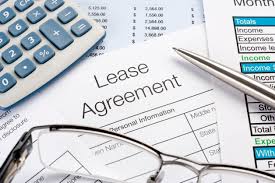THE BENEFITS OF LEASING PROPERTY: FLEXIBILITY AND FINANCIAL CONSIDERATIONS
Leasing property has become a popular option for individuals and businesses alike. Whether you’re looking for a place to live or seeking a location for your business, leasing offers a range of benefits that make it an attractive choice. In this article, we will explore two key advantages of leasing property: flexibility and financial considerations.
Flexibility:
One of the primary advantages of leasing property is the flexibility it provides. When you lease a property, you are not tied down to a long-term commitment. This flexibility is particularly beneficial for individuals who may need to relocate frequently or for businesses that are still in the early stages of growth and need to adapt quickly to changing circumstances.
For individuals, leasing property means that you can explore different neighborhoods and cities without the burden of buying a home. It allows you to test out different areas and determine which one suits your lifestyle best. Additionally, leasing provides the flexibility to upsize or downsize your living space based on your changing needs. For example, if your family is expanding, you can easily find a larger rental property without the hassle of selling a home.
For businesses, leasing property offers the advantage of agility. It allows companies to respond quickly to market trends and adjust their location or office space as needed. This is especially important for startups and small businesses that may not have the financial resources to purchase a property outright. Leasing allows them to conserve capital and allocate funds towards other critical business operations, such as marketing, product development, or hiring.
Financial Considerations:
Another significant benefit of leasing property is the potential cost savings compared to buying. When you lease, you typically have lower upfront costs compared to purchasing a property. There is no need to provide a substantial down payment or take out a mortgage. Instead, you usually pay a security deposit and the first month’s rent, making it a more affordable option, especially for those who are just starting out or have limited financial resources.
Leasing property also eliminates the burden of property taxes and maintenance costs. These expenses are typically the responsibility of the property owner or landlord. By leasing, you can avoid unexpected repair costs and budget your monthly expenses more effectively. This is particularly advantageous for businesses, as it allows them to allocate their financial resources towards growing their operations rather than investing in property maintenance.
Furthermore, leasing property provides the opportunity for predictable monthly expenses. Unlike homeowners who may face fluctuating mortgage rates or property value assessments, renters often have fixed monthly rent amounts for the duration of their lease. This stability allows individuals and businesses to plan their budgets more accurately and avoid surprises.
Conclusion:
Leasing property offers several benefits, including flexibility and financial considerations. The flexibility of leasing allows individuals to explore different locations and adjust their living space as needed, while businesses can adapt to changing market conditions without being tied down to a specific property. From a financial standpoint, leasing property can be more affordable with lower upfront costs, no property taxes, and reduced maintenance expenses. Additionally, the predictable monthly expenses associated with leasing enable better budgeting and financial planning.
Ultimately, whether you are considering leasing a property for personal or business use, it is essential to carefully evaluate your specific needs and circumstances. While leasing provides numerous advantages, it may not be the ideal solution for everyone. By weighing the benefits against your goals and financial situation, you can make an informed decision that best suits your needs.



